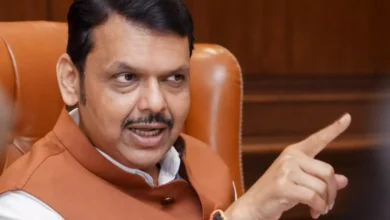SBI Report Calls on India to Strengthen PLI Schemes Amid Trump’s Reciprocal Tariffs
The report highlights India’s opportunity to capitalize on global trade shifts as the U.S. imposes higher tariffs on Chinese products


SBI Report Urges India to Deepen PLI Schemes in the Wake of Trump‘s Reciprocal Tariffs
New Delhi: A recent State Bank of India (SBI) report has called on the Indian government to widen and deepen its Production-Linked Incentive (PLI) schemes after U.S. President Donald Trump announced retaliatory tariffs on several nations, including India. According to the report, India is well-placed to take advantage of the changing global trade scenario, especially with the U.S. raising tariffs on Chinese products.
The SBI report stressed that the international trade situation is at a critical juncture, and India needs to move quickly to grab new opportunities. It suggests that the PLI schemes, presently operational across sectors such as electronics, pharma, and automobiles, should be extended to high-potential sectors such as textiles, engineering goods, and gems and jewellery.
The government of India must increase existing schemes under Production Linked Incentive (PLI) schemes in these sectors to more products and by three years to further strengthen investment in domestic industries and their global competitiveness,” the report added.
One of the most direct benefits for India is in gaining a larger share of the U.S. market, particularly as U.S. consumers seek alternatives to Chinese goods. The report highlights industries such as textiles, apparel, footwear, and iron and steel as sectors where India can increase its U.S. exports.
The SBI report simultaneously pointed out the existing tariff disparity between the two countries. While the U.S. has slapped a high 26% tariff on Indian products, India charges only around 15% on American products. The report emphasizes that this imbalance needs to be corrected through continued trade negotiations. It adds that India is reportedly willing to sharply lower tariffs on more than $23 billion in American products as part of a larger trade agreement with the U.S.—an action that can resolve prevailing tensions and establish a more equitable trade arrangement.
Additionally, the report indicated that tit-for-tat tariffs by the U.S. against nations like China, Vietnam, Bangladesh, and Indonesia provide a strategic opportunity for India. With global value chains being rethought and remade, Indian exporters can occupy the void created by these nations.
“India has much to gain if it can leverage the anticipated reshoring of international supply chains. Increasing the PLI scheme would give domestic producers the incentive needed to increase output and enhance export competitiveness,” the report said.
The industries most likely to be impacted—and potentially benefited—by the changes in global tariffs are textiles, engineering, and gems and jewelry. The SBI report summed up by recommending that Indian exporters as well as policymakers stay agile and better prepared to capitalize on the shifting trade patterns and consolidate India’s position in the global export sector.






